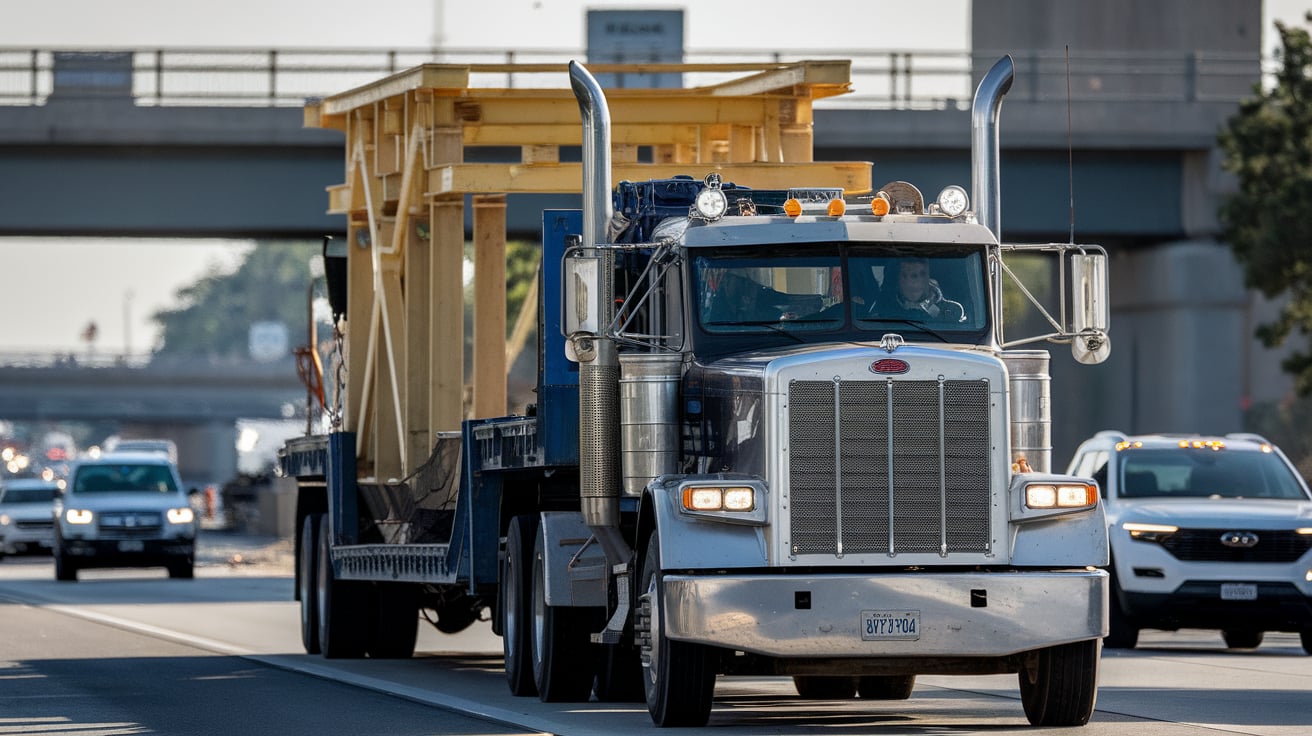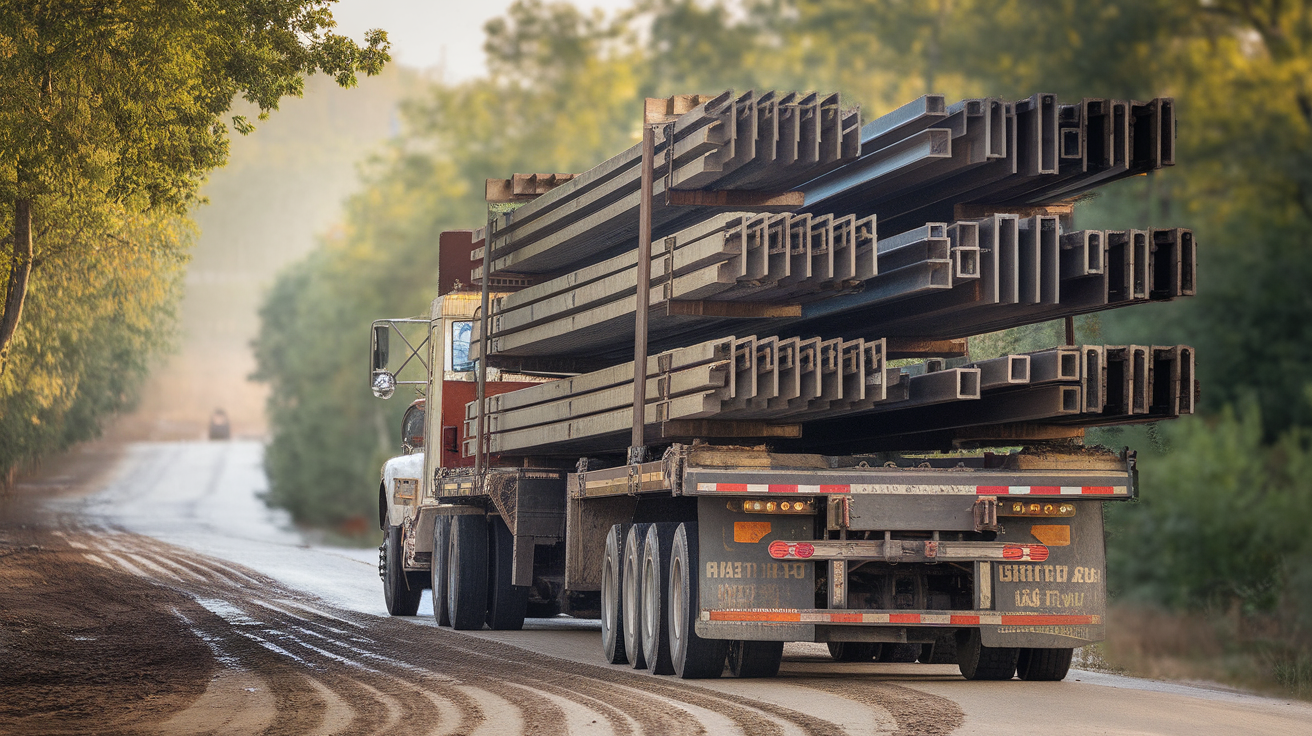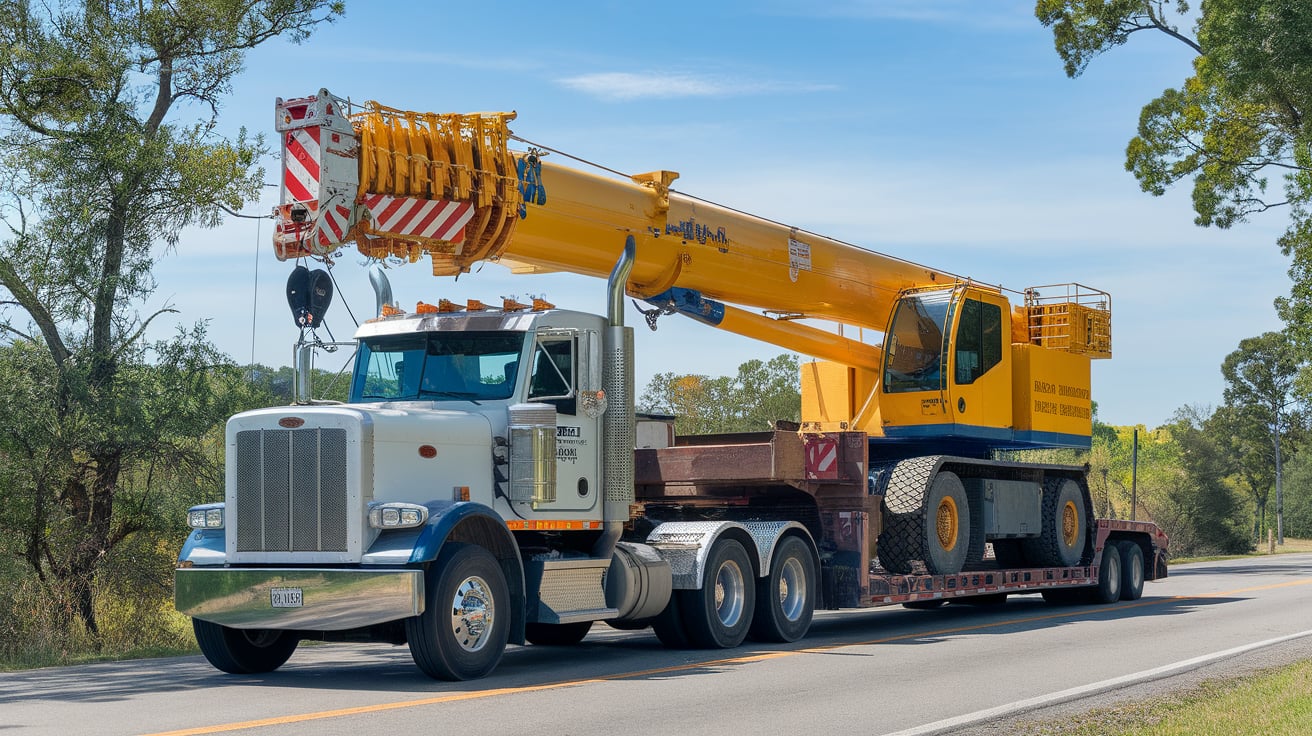Why Safe Trucking Practices Matter for Your Heavy Haul in Maryland
Freedom Heavy Haul can offer expedited Pickup and Delivery for any size shipment anywhere in the USA. Contact us today for No Hassle, No Pressure Pricing.
Transporting oversized and overweight loads is no small task. It requires careful planning, strict compliance with regulations, and a commitment to safety. Whether you need to move heavy machinery, industrial equipment, or large construction materials, ensuring a secure and legal transport is crucial.
We at Freedom Heavy Haul understand that when you entrust your freight to a trucking company, you expect reliability, efficiency, and safety. Maryland enforces strict laws to protect roadways, reduce accidents, and maintain smooth freight movement. If these regulations are not followed, it could result in costly fines, legal complications, or even severe road incidents.
As a customer, knowing how safe trucking practices benefit you helps you make informed decisions about who to trust with your heavy haul needs. Let’s discuss the key reasons why safety is so important and how it impacts your shipment.
Regulatory Compliance for Heavy Haul Trucking
Every heavy haul shipment must comply with both state and federal regulations to ensure legal and safe transportation. These laws are in place to protect infrastructure, prevent accidents, and promote responsible trucking operations.

Maryland’s Heavy Haul Regulations
Maryland has strict rules that determine how oversized and overweight loads can be moved. If these regulations are not followed, trucking companies and customers alike can face severe consequences, including delays and financial penalties.
Weight Limits
Maryland law states that standard trucks cannot exceed 80,000 pounds without obtaining a special permit. If your shipment requires more weight capacity, it must go through an approval process to receive proper authorization.
Permit Requirements
To transport an oversized or overweight load legally, a Maryland Hauling Permit is required. This permit outlines specific details about the haul, including approved routes, necessary safety precautions, and restrictions such as travel times.
Travel Restrictions
Certain highways, bridges, and tunnels in Maryland have height, width, and weight restrictions. If your shipment does not comply with these regulations, it may require an alternate route or additional permits to proceed safely.
Escort Vehicles
For extremely large loads, pilot cars or escort vehicles may be necessary. These vehicles warn other motorists about the presence of a large truck and help guide the haul safely along the approved route.
Federal Laws Governing Heavy Haul Trucking
While Maryland has its own set of rules, federal agencies such as the Federal Motor Carrier Safety Administration (FMCSA) and the Department of Transportation (DOT) also regulate heavy haul trucking.
Hours of Service (HOS) Regulations
To prevent driver fatigue, the government enforces strict driving hour limits. If these regulations are violated, it could lead to increased accident risks and hefty fines for non-compliance.
Vehicle Maintenance Requirements
Every truck must undergo regular inspections to ensure it is in top working condition. Faulty brakes, worn-out tires, or other mechanical issues could pose serious risks on the road.
Cargo Securement Rules
Loads must be properly secured using chains, straps, and tie-downs to prevent shifting during transport. If a load is not properly restrained, it could cause an accident, damage property, or result in fines for improper cargo securement.
Risk Management and Cargo Protection
Transporting heavy loads comes with risks. Without proper precautions, accidents, cargo damage, or operational setbacks could occur. Safe trucking practices help minimize these risks and protect your shipment.

Common Risks in Heavy Haul Operations
Moving oversized freight presents unique challenges. If you are shipping heavy equipment or industrial materials, you need to be aware of the potential risks.
Overloaded or Unbalanced Cargo
If weight is not evenly distributed, it can lead to dangerous situations such as truck rollovers or brake failures. Improper loading can also make the haul difficult to control, increasing the risk of accidents.
Driver Fatigue
Long hours on the road take a toll on a truck driver’s ability to react quickly. Driver fatigue is one of the leading causes of trucking accidents, which is why regulated rest periods are essential for safety.
Mechanical Failures
Heavy hauls put added stress on a truck’s brakes, tires, and engine. If a truck is not properly maintained, mechanical failures could cause breakdowns or accidents, delaying your shipment and putting others at risk.
Low Clearance Hazards
Bridges and tunnels have height restrictions, and hitting an overpass could cause severe damage to both the structure and your freight. Careful route planning is necessary to avoid these obstacles.
Preventative Measures for Safe Heavy Haul Transport
To keep your shipment secure and avoid costly delays, truck operators follow strict safety procedures.
Pre-Trip Inspections
Before hitting the road, professional drivers conduct a full inspection of the truck and cargo. Checking the brakes, tires, lights, and securement equipment ensures a safe journey.
Route Planning
Selecting a safe and legal route is one of the most critical steps in heavy haul trucking. Trucks must take roads that can handle their weight and size, avoiding restricted areas and hazardous conditions.
Driver Training
Not every driver is qualified to handle oversized loads. Special training ensures that operators understand how to control the vehicle safely, adjust to road conditions, and respond to emergencies.
Weather Awareness
Heavy rain, high winds, and icy roads can create dangerous driving conditions. Safe trucking companies monitor weather reports and adjust schedules when necessary to avoid these risks.
Infrastructure Protection and Road Safety
Oversized loads put tremendous stress on Maryland’s roads and bridges. Responsible trucking practices help preserve the state’s infrastructure while keeping other motorists safe.

Impact of Overweight Loads on Infrastructure
Maryland’s highways were not built to support excessive weight over long periods. Heavy hauls must be carefully managed to prevent long-term damage to the transportation network.
Pavement Damage
Excessive weight can crack roads, create potholes, and accelerate wear on highways, leading to costly repairs.
Bridge Strain
Bridges have designated weight limits. If an overweight truck crosses a bridge not designed for its load, it could lead to structural weakening or collapse.
Traffic Congestion
Large trucks that are improperly routed can cause major traffic disruptions, slowing down both passenger and commercial vehicles.
Maryland’s Infrastructure Protection Measures
The state enforces strict laws to minimize road damage and maintain safety.
Weigh Stations and Inspections
Truck weigh stations monitor compliance with legal weight limits, ensuring that all trucks are operating within the law.
Bridge Load Ratings
Weight limits for bridges help prevent structural damage, protecting both the transportation system and public safety.
Fines for Overweight Violations
Companies that exceed permitted weight limits face substantial fines. These penalties discourage improper trucking practices and promote compliance with safety regulations.
Financial and Legal Consequences of Unsafe Trucking
Choosing a trucking company that neglects safety standards could lead to major financial and legal problems for your business.
Monetary Penalties for Non-Compliance
Violating trucking laws leads to steep fines, shipment delays, and potential legal action.
Overweight Violations
If a truck exceeds legal weight limits, the company—and sometimes the customer—may be held responsible for the resulting fines.
Permit Violations
Failing to obtain the necessary permits can lead to shipment delays and additional costs.
Cargo Securement Citations
Improperly secured loads can cause accidents, resulting in liability claims and financial losses.
Legal Liability in Case of Accidents
If an accident occurs due to improper trucking practices, there can be serious legal consequences.
Lawsuits and Compensation Claims
A trucking company can be held accountable for property damage, injuries, or even fatalities caused by negligence.
Insurance Premium Increases
Unsafe trucking practices lead to higher insurance costs, which could impact pricing for customers.
Reputation Damage
A poor safety record can result in lost contracts and a damaged reputation, making it harder for a trucking company to secure new business.
We at Freedom Heavy Haul take pride in our commitment to safety, regulatory compliance, and reliable transportation. If you need heavy haul trucking in Maryland, choosing a company that prioritizes safety ensures that your shipment arrives on time, intact, and in full compliance with the law.







